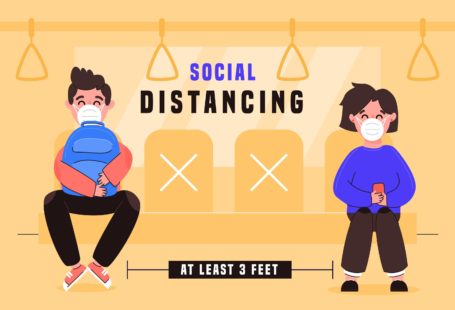When someone hurts us, our children or the people we love, they speak about our backs or act to embarrass us, we can be trapped in think about them for hours or days. We need to know how to stop thinking about someone…
How can we stop feeling conflicting with the madness of others? How can we stop thinking about someone – or what else should we do when those thoughts come to our mind?
Why do you think about someone so many times?
We are washing dishes, driving cars or walking dogs and we cannot stop thinking about how unkind, dishonest and selfish they are. Their images, their words constantly appear in our minds. 5 hours, 5 days, 5 weeks after that, they’re still there – we see their faces in front of us, even if we don’t see them all the time.
Malicious thoughts in cycles
Most of us know that this kind of brooding thought is harmful to us physically and psychologically.
Studies show that a brooding mind, a wandering thought mind is an unhappy and unhealthy mind. When our minds are filled with repeated battles, anger or loss, we are in a state of harmful stress. Scientists show how meditation plays a role in diseases including depression, cancer, heart disease and immune system disease.

The stress chemicals we immerse in them are more harmful to us than are actually happening to us at first.
Plus, toxic thoughts don’t make you feel good. It’s like being caught in a centrifugal force, interesting for a few minutes and now it only makes you feel sick and want to get rid of.
You don’t know how to escape from your mind
We make every effort to remove anything harmful from our lives. Buying organic food, removing chemicals from our homes or organic cosmetics.
But we make little effort to clean our minds. What solution to clean harmful thoughts?
How to stop thinking about someone driving you crazy
The following eight methods are effective for you – many based on the teachings of the leaders on meditation and mindfulness. Choose the best way that suits you!
Wait and see what happens next
We often have the urge to respond to someone or a difficult situation right away. Buddhist psychologist: Sylvia Boorstein recommends that we allow ourselves to wait and see what happens.
Exit the blame game
Choosing past events and trying to blame someone is rarely effective. Bad things and misunderstandings often “occur” through a series of events, like a domino effect. No one is completely at fault for the final result.

Sylvia Boorstein has a saying that reminds us of this truth: “First this happens, then that happens, then it happens, then it happens. And that’s how something happened. ”
“Handle your biggest problem first.”
Meditation teacher: Norman Fischer thinks that no matter what happens, the biggest problem we face is our own anger. Our anger creates a cloud of emotions that prevents us from responding in an effective way. Our anger is really our biggest problem. Handle yourself – meditate, exercise, talk less and give you plenty of time, whatever it takes – before you have talked with others.
Don’t try to guess others
Ask yourself, if others are trying to guess what you are thinking, or what your motives are, then what do you think they are right? They probably won’t have a clue what is really going on in your head. So why try to speculate what others are thinking? There is a high chance that you will be wrong, meaning all your contemplation of others is a waste of time.
Your thoughts are not true
Do not believe everything you think. We experience our emotions – anxiety, stress, fear and stress – in our bodies. Our emotions are body. But we often see this as a sign that our thoughts are bound to be true.

Buddhist Tsokyni Rinpoche teaches that when we are attacked by anxiety, regret, fear, anger, remember that the emotional state and body we experience is “True but not right. ”
How can you develop from this?
Psychologist Tara Brach said that when we are angry, feel offended by something, or criticize, irritable because we are treated by others, we increase our suffering. An event + our reaction = suffering. When we can live in the present with our emotions and examine why we experience such a strong reaction. And what our feelings tell us about ourselves, then It is an opportunity to learn. An event + verification + present present = development. Focus your thoughts on development.
Forgive for your sake
Buddhist psychology Jack Kornfield teaches, “It is not necessary to be faithful to your suffering.” We are too loyal to our suffering, “focusing on the psychological trauma of ‘what happened.” ‘Yes, it happened. It’s really horrible. Forgiveness is not something we do for others. We forgive so we can get rid of the deep suffering that comes with attachment to the past.
Take a 90 second break
After 90 seconds, an emotion will come up and drop like a wave in the sea.” said to Psychiatrist Dan Siegel. “It only takes you 90 seconds to change a mood, including anger. Give yourself 90 seconds – about 15 seconds to take a deep breath – so as to thinking about someone driving you crazy.





